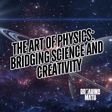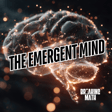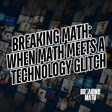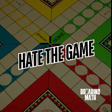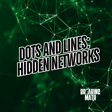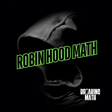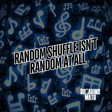Become a Creator today!Start creating today - Share your story with the world!
Start for free
00:00:00
00:00:01

11: A Culture of Hacking (Hacker Culture)
The culture of mathematics is a strange topic. It is almost as important to the history of mathematics as the theorems that have come from it, yet it is rarely commented upon, and it is almost never taught in schools. One form of mathematical inquiry that has cropped up in the last two centuries has been the algorithm. While not exclusive to this time period, it has achieved a renaissance, and with the algorithm has come what has come to be known as "hacker culture". From Lord Byron to Richard Stallman, from scratches on paper to masses of wire, hacker culture has influenced the way in which we interact with conveniences that algorithms have endowed upon our society. So what are these advances? How have they been affected by the culture which birthed them? And what can we learn from this fragile yet pervasive relationship?
---
This episode is sponsored by
· Anchor: The easiest way to make a podcast. https://anchor.fm/app
Support this podcast: https://anchor.fm/breakingmathpodcast/support
---
This episode is sponsored by
· Anchor: The easiest way to make a podcast. https://anchor.fm/app
Support this podcast: https://anchor.fm/breakingmathpodcast/support
Transcript
Advertisements and Announcements
00:00:00
Speaker
Every day, we rise, challenging ourselves to work for what we believe in. At U.S. Border Patrol, protecting our borders is more than a job. It's a calling. Agents answer the call, working together to keep our country and community safe. If you're ready for a new mission, join U.S. Border Patrol and go beyond. Learn more at cpp.gov slash careers.
00:00:30
Speaker
Okay, round two. Name something that's not boring. A laundry? Ooh, a book club. Computer solitaire, huh? Oh, sorry. We were looking for Chumba Casino. That's right. Chumbacassino.com has over 100 casino-style games. Join today and play for free for your chance to redeem some serious prizes. Chumbacassino.com.
00:01:00
Speaker
This episode is distributed under a Creative Commons attribution share like 4.0 international license. For more information, visit creativecommons.org. Somebody stole our website. Oh no, whatever shall we do? I mean, I guess you could go to the new website, http://breakingmathpodcast.app with no www for all you old timers.
00:01:28
Speaker
So breakingmapodcast.app, I mean, if you're into that sort of thing.
00:01:35
Speaker
Hey, Breaking Math fans. First, I want to thank you for listening. I have an important message for everyone. You can start your own podcast right now with Anchor. Anchor lets you create and distribute your own podcast. Just get an idea, record, and upload. It's just that easy. Anyone can do it. I'm on my way to accomplishing my dream, and you can too. Just get on your device's app store and download Anchor. It contains everything you need to make a podcast. With Anchor, you can put your podcast on all the big platforms.
00:02:04
Speaker
Apple Podcast, Spotify, Google Podcast, Amazon, and more. Reach the whole world with Anchor. Best of all, Anchor is free. You have nothing to lose with a free platform. Download the Anchor app or go to anchor.fm to get started.
Mathematics Culture and Algorithms
00:02:23
Speaker
The culture of mathematics is a strange topic. It is almost as important to the history of mathematics as the theorems that have come from it, yet it is rarely commented upon, and it is almost never taught in schools. One form of mathematical inquiry that has cropped up in the last two centuries has been the algorithm. While not exclusive to this time period, it has achieved a renaissance, and with the algorithm has come what has come to be known as hacker culture.
00:02:47
Speaker
From Lord Byron to Richard Stallman, from scratches on paper to masses of wire, hacker culture has influenced the way in which we interact with the conveniences that algorithms have endowed upon our society. So what are these advances? How have they been affected by the culture which birthed them? And what can we learn from this fragile yet pervasive relationship? All of this and more on this episode of Breaking Math, Episode 11, A Culture of Hacking.
00:03:17
Speaker
I'm Jonathan. And I'm Gabriel. And first we're going to apologize for the poor editing on episode 10. It didn't flow as well as we have liked. Yeah, this may happen to a lot of us in this particular instance. Jonathan and I had a lot of projects going on and we actually were editing until about 10 p.m. the night that it was released. And we released what we thought was the finished product later to discover. There was about a two minute gap of time at the end of the episode and a few other
00:03:44
Speaker
instances of things that we wish wish were better edited but so be it such as life sorry moving on yeah and as long as we don't have a lot of dead air or jump podcast we should be fine
Guest Introductions
00:04:01
Speaker
And without further ado, we're going to introduce the guests. And today we have on with us Ty Bannerman. I'm a co-host of the City on the Edge podcast. I'm also a freelance writer. You see my work in the alibi Atlas Obscura narratively and that sort of thing. And we also have on with us Nora Hickey. And I'm also a writer, a poet with publications in Guernica, Massachusetts Review, other smaller literary journals. And I also teach at the UNM Honors College. And of course, we have on with us
00:04:31
Speaker
Hi, I'm Jaleela Arthur, your engineer stagehand and former president of KUNM Generation Listen. I am now acting as VP, but we're happy to help you guys out in this project. And for those of you in radio lens who can't see Jaleela, she actually looks like a stagehand today. She's West in all black.
00:04:52
Speaker
And guys, as I understand, you guys do a podcast, City on the Hill? No, that's the City on the Edge. City on the Edge, I've never heard of that.
City on the Edge Podcast Discussion
00:05:00
Speaker
Yeah. Well, we're a podcast about Albuquerque, New Mexico, and kind of the culture and history of the Southwest. How long have you guys been around for? About a year. Where's New Mexico? It's part of Mexico. No, wait, hold on. Let me check again. There's a New Mexico?
00:05:17
Speaker
Actually, there was a comment on Reddit. There was a European user who was not aware that there was a New Mexico. We had a great conversation because he said he learns all this new information from Reddit, which was great. So I thought it was cool.
Influence of Hacker Culture
00:05:28
Speaker
It's a common mistake, right? It is. It is. It's actually a feature in one of the magazines. One of our 50 is missing. What's the magazine again? That's a New Mexico magazine. Oh, yes. That's right. That's right. Good stuff. They've been running that for like 50 years, that particular feature where it's just filled with... Yes.
00:05:44
Speaker
So, listeners, if you're not aware that there is a New Mexico, you aren't alone. That's a feature in a magazine. Well, what I like to say is that New Mexico as featured in Breaking Bad, because everybody knows Breaking Bad, they might not know New Mexico. No, Ty and Nora, I'd like to put a question to you guys. Have you ever been influenced at all or come into contact with what has come to be known as hacker culture?
00:06:12
Speaker
I, Nora, have not. I have a bit. My father had a subscription to 2600 magazine, which was the Hacker Quarterly, and so he was kind of tangentially aware of stuff going on in that world. And then Steve Jackson Games was famously rated by the Secret Service for
00:06:37
Speaker
Well, they believed that Steve Jackson Games was printing up a manual of how to hack computers and whatnot, but really it was a role-playing game supplement for cyberpunk. So I thought that was kind of funny. So I was aware of that back in the day.
00:06:52
Speaker
Now, what's interesting is that the FBI suspected of doing that probably because a huge part of hacker culture is the motto, information wants to be free. And also there's the whole distinction, free isn't free beer versus free isn't free speech, but we'll get to that. Anybody who's downloaded a song illegally, which I've never done, has anybody ever done that? I'm sorry. Is that possible to do?
00:07:16
Speaker
No, I don't think so. But anybody who's ever done that has been influenced by hacker culture, arguably. I take back my no from before. Tsk, tsk. Are you admitting it? Are podcasts admissible as evidence? Yeah. Oh, yeah. Oh, crap. No, I never did it, so.
00:07:38
Speaker
But you thought about it. Yeah, I thought about it. You made a wise choice.
Historical Computing and Hacker Figures
00:07:42
Speaker
Okay, okay. Very good. So you were slightly influenced by hacker culture only to not be, you know, one of those back slaters. Okay.
00:07:50
Speaker
I was considering doing it and I thought to myself, well, would I steal a car? And I decided against downloading the song. OK, very good. Very good. Yeah, I'm glad that we're all on the same page. There is a part of agriculture which has to do a little bit with snark. And we have a quote by Charles Babbage that I think embodies a little bit of agriculture. And we'll learn a little bit more about Mr. Babbage in just a moment.
00:08:17
Speaker
On two occasions I have been asked, pray Mr. Babbage, if you put into the machine wrong figures, will the right answers come out? I'm not able rightly to apprehend the kind of confusion of ideas that could provoke such a question. So yeah, anybody have any thoughts about that quote?
00:08:38
Speaker
I just like the snark in the end. I can't even understand. You know, one of my favorite lies that my father taught me that I will teach to my son is that nobody likes a smart aleck.
00:08:50
Speaker
Everybody looks so smart. I like it. They're funny. That's right. So is this an early form of he's talking about garbage and garbage out. Is that basically what we're looking at here? It's a lot like that. Yeah, exactly that good noticing. And what he's obviously been he's talking about his difference engine.
00:09:10
Speaker
different engine we covered of course on the computing episode it was like a proto computer that that is one of the breaking math best kept secrets is that little episode for digital evolution oh I love that episode we yeah we went into great depth about not only Charles Babbage's attempts at a different engine but also his failures it's funny there are things he was good at and things that he was not good at he wasn't good at talking to people or securing funding well he was good at securing funding but not enough funding
00:09:36
Speaker
Yes, yes, absolutely. So for more on Charles Babbage and his fantastic failures and his successes, I need to say in fairness, you can go back to episode four, digital evolution. But for now, we're going to talk more about this quote.
00:09:50
Speaker
I just like the end. It's an early version of I can't even. It is. I love that.
Language and Hacker Culture
00:09:56
Speaker
Where's that from? Where's that from? No, it's just people say that. I can't even. I can't even. Yes, it is. I don't know. What is that memes language? I'm speaking in memes now. What do you guys think the two occasions were?
00:10:09
Speaker
He's probably at some dinner party. He was pretty rich. We're actually gonna talk a little bit about his riches in just a second. I mean, that sounds like a dinner party kind of question. I mean, I know as a programmer, sometimes I talk to people and they're like, oh, I get it. It's like, and they make an analogy. And then I'm like, no, it's not like that at all. Nice try. Can we have an episode on the worst analogies that are completely, completely missing the point? Wouldn't that be a great writer's topic, you know, like for our Reddit page or for our Facebook page? It'll be like an episode about Slingshot.
00:10:39
Speaker
but where the slingshots don't work. And Charles Babbage, in his memoirs, talked a little bit about lockpicking, which is a famous hacker pastime. Our guests, do you guys have any interest in lockpicking? My friend, a guy who runs, who's a big part of QLab in Albuquerque, he's constantly posting on Facebook about how he has acquired new lockpicking tools, but as far as I know, he does not commit crimes with them, so I don't know what he does with them.
00:11:08
Speaker
That's a huge part of hacking, the difference between committing a crime and being able to. I mean, not to get dark, but I could jump across this table and scratch somebody's eyes out. I'm not going to do that because that would, like, why would I do that? But you can. I could. I would love to get that guy on this podcast. I'd love to talk Feynman with him on our last episode, you know, throwback to our last episode. I won't do throwbacks the whole day, but, you know, we did talk about Feynman's lock picking in the last episode.
00:11:33
Speaker
I also want to point out that I have actually successfully picked a lock with a credit card on several occasions, my own front door, and so I do have personal experience with it. Oh yeah, that totally messes up the credit card, though. Yeah, it really ruined it. I switched to library cards at some point because they're a lot easier to replace. Oh, you know really good are gift cards for that. Yeah. What about bobby pins?
00:11:54
Speaker
Oh no, he's talking about where it's not a deadbolt and what you do is you put the card above the lock, slide it down while going back and forth, and then the door will pop open.
00:12:07
Speaker
I also failed one time and then kicked a door open. Does that count as hacking? Would that be also called a brute force attack? Same for me, personal experience, just been locked out of my own house, tried to do it, bobby pins, safety pin, paper clips, didn't work but learned a lot about how difficult that is and now would very much like to have one of those cute necklaces. They have like a chandelier necklace now for sale, all of the tools you need for picking a lock.
00:12:37
Speaker
Now Babbage actually wrote a paper about this because he was a fancy person who wrote papers. And he actually did a lot more hacking stuff too. We have a quote by him real quick.
00:12:48
Speaker
One great aid in deciphering is a complete analysis of the language in which the cipher is written. For the purpose, I took a good English dictionary and had it copied out into a series of 24 other dictionaries. They comprised all words of one letter, two letter, three letters, etc., etc., up to 26 letters.
00:13:09
Speaker
Each dictionary was then carefully examined, and all the modifications of each word, as for instance the plurals of substantives, the comparatives and superlatives of adjectives, the tenses and participles of verbs, etc., were carefully indicated. A second edition of these 26 dictionaries was then made, including these new derivatives.
00:13:29
Speaker
So obviously he was a rich guy. I mean, who can afford to do that? That's a lot of dictionaries to, to do. Yeah. And this was, I mean, right now I could do that like in like 15 minutes using Linux. But back then you had to have somebody look through the entire, like that would have been like a week, like six week long process, probably. And a resource team, like you'd have to have more than one person involved.
00:13:51
Speaker
So actually the reason why hacking may be more common now than it used to be is because now it's available to the masses, kind of like math is through general education. So it's like he just did this on a lark and he could afford to do it, whereas somebody today wouldn't have to afford to do it. They could do it with much less equipment and time.
00:14:10
Speaker
Oh yeah, yeah. Um, all I would have to do is, um, actually it would just be an awk and a said command and, uh, I could do that and probably I could, it would, I'll have to look up the man page for awk and said, but yeah. The same is also true. I was just going to mention for podcasting and for film. I mean, everybody's a photographer now with our fancy phones. Oh yeah. Has anybody actually tried to edit, um, film manually?
00:14:37
Speaker
I have had a workshop before with experiments in cinema here on campus where they did it in a pretty artistic way. So we were like gluing flower petals to film and then like stringing it together. But that's how you do it is you cut it and stitch it and string it together.
00:14:54
Speaker
Oh yeah, there's literally this little machine. It's like a little mini projector that projects the frame that you're on. You have to cut it right at the edge. And then you have these little, they look like the protectors for three ring binders. You put those on the edges, you glue them on, you have to wait a little bit and continue. If anybody's actually heard Bohemian Rhapsody, it was made in a similar way. Just literally taping tape on top of each other. That's how they got the wall of sound is what it's called.
00:15:23
Speaker
Wow, that's cool. Fast-forwarding about a century, we come to a classic piece of hacker literature called the jargon file. The jargon file contains many elements of hacker culture.
00:15:35
Speaker
that have persisted to the present day. I'm actually fascinated by hacker culture and the jargon file. I'm actually newer to it, and I only learned about the jargon file recently. So essentially, for our listeners who are not familiar with it, it's basically a collective. It's sort of like a wiki, but it includes the terminologies, the practices, and the lure of hacker culture in general. What are you guys' first experiences with the internet? AOL. Getting my first screen name. Betty C-22 for Betty Cooper in Archie Comics.
00:16:04
Speaker
And really? Yeah. And that was dial-up, right? Mm-hmm, yeah. And for younger listeners, this is what dial-up sounds like.
00:16:38
Speaker
That's right, that's the sound. In fact, to explain dial-up, gosh, it's sort of like, imagine ringing a doorbell before somebody answers. In fact, I grew up Catholic, and when I was younger, I thought you literally couldn't talk to God until you did the sign of the cross. It's kind of like dialing up, you know what I mean? That was actually a time where you used to not be able to talk on the phone, like your actual home phone, while you were on the internet. But Ty, your first experiences with the internet?
00:17:05
Speaker
Well, I had a modem, I believe it was a 2400 baud modem, probably about 1992 or so. So we dialed up to BBSs, which were little walled gardens, I guess is what you'd call them, where you could get files and you could have a little message boards and that sort of thing.
00:17:23
Speaker
Were they the BBSs before the days of DNSs? Like, did you actually have to call up a number? Yeah, you had to call up a specific number and hope that whoever's mom wasn't on the phone right then and then you could get into their bulletin board. And these were villainous hubs of scum and villainy half the time. Some of them were. There was definitely a lot of, once again, illegally copied files were available, many of them in different forms. But there were also games you could play.
00:17:52
Speaker
For the record, everybody here at Breaking Math gives a stern wag of the finger to anybody doing such activities. We were very young and we believed the world belonged to us back then. We had a lot of, yeah.
00:18:07
Speaker
on a website that I used to visit that had all the old BBSs on it, which I won't mention because I don't want to promote it. But, uh, they had like things like how to get a free meal at Fuddruckers. Oh yeah, totally. That was a thing called the, it was like the off brand anarchist cookbook. It wasn't actually the anarchist cookbook, but it was a series of files, uh, that were written by various people about how to do things like scam free meals, how to get into a six flags for free. And then some very worrisome ones like how to create sleeping gas. And I have no idea.
00:18:37
Speaker
if they were legitimate recipes or just poison, I don't know. They had the recipe for banana-dine in the Anarchist Bookbook, which is not a thing. Right, yeah. A lot of stuff that apparently was potentially dangerous and at best ineffective. So that gives you a little bit of, especially the BBS thing, gives you a little bit of the taste of the culture in which hackers were
00:19:02
Speaker
Immersed. Before BBSs you had time sharing systems which were people just sharing the same computers because computers were so expensive that you couldn't have your own. You had to buy part of one.
00:19:13
Speaker
I'm sorry, sorry, VBS, what is
The Art of Programming
00:19:15
Speaker
that? Oh, BBS. Oh, okay, okay, that's not a saying, VBS, Vacation Bible School. Sorry, what does BBS stand for? It's a bulletin board system. Oh, of course, I should have known that. So the idea is that it's like you're a bulletin board in a hallway somewhere only, it's somebody's computer. Well, see, I knew that. I'm asking for anybody, I'm asking for a friend who... Oh, yeah, totally.
00:19:34
Speaker
that friend who's behind you. Your friend Fraybriel. Yes, my friend Fraybriel. So for this next part, what we're going to do is we're actually going to read a few selections just from the introduction of the jargon file and anybody can look this up online. I think all you have to do is probably Google search jargon file. We'll probably read the first few sentences as well as I think the fourth paragraph. There's some wonderful selections that really give the listener a taste for the culture that is promoted in this document.
00:20:04
Speaker
This document is a collection of slang terms used by various subcultures of computer hackers. Though some technical material is included for background and flavor, it is not a technical dictionary. What we describe here is the language hackers use among themselves for fun, social communication, and technical debate. Among hackers, though, slang has a subtler aspect.
00:20:28
Speaker
paralleled perhaps in the slaying of jazz musicians as some kinds of fine artists, but hard to detect in most technical or scientific cultures. Parts of it are code for shared states of consciousness. There is a whole range of altered states and problem-solving mental stances
00:20:47
Speaker
basic to high-level hacking, which don't fit into conventional linguistics reality any better than a Coltrane solo in one of Maatrice's in Maritz, Escher's surreal trompe de l'Oréal compositions. Escher is a favorite of hackers.
00:21:03
Speaker
And hacker slang encodes these subtleties in many un-obvious ways. As an example, take the distinction between a clutch and an elegant solution, and the differing connotations attached to each. The distinction is not only of engineering significance, it reaches right back into the nature of the generative process in program design and asserts something important.
00:21:29
Speaker
about two different kinds of relationships between hackers and the hack. Hacker slang is unusually rich in its implications of this kind, of overtones and undertones that illuminate the hackish psyche.
00:21:43
Speaker
Now, back to the language episode, I know you didn't want to call back Spaldu on. We talked a little bit about how states of mind are influenced by language, the superior war for Saper-Worth hypothesis. And I think this speaks a lot to hacker culture. Hacker culture has its own vocabulary because it's its own mental state.
00:22:04
Speaker
Um, one thing that they didn't mention here, but I think should be mentioned is the word, um, is the word grok, which means to understand something, you know, when you feel like a click of understanding and you just get something that's grokking something nice. And so, yeah, grokking is basically a light bulb moment, which can happen in anything, you know, mathematics or otherwise. And we bring all this up because the culture in which something is developed shows a lot about what that thing does.
00:22:32
Speaker
So for algorithms, which are actually some argue, including Terence Tao, are an altered state of consciousness, you need to alter your consciousness to fit that state. Any thoughts about this, guys? Well, I kind of wonder, Nora, as a poet, do you ever, do you feel that that might hold true for other, for the type of, for the ways in which you use words and language?
00:22:56
Speaker
Yeah, but I was also looking at the jazz comparison and thinking about how the language and music that existed for slaves that were taken from a place in a new place, America, how the old music didn't work and new music didn't work. So they had to come up with something else and thinking of that to embody their new existence. And if that, I really thought that analogy was so interesting for hackers.
00:23:26
Speaker
Yeah, definitely the hacker culture has a lot of ties to the counterculture movement of the sixties, for example, too. Um, did either guys pick up on that from the description? I guess in terms of undermining an established culture, then for sure, because that's sort of what I take to be the definition of hacking something.
00:23:47
Speaker
Yeah, I mean, there's definitely a sort of vein of intellectualism, which has always been kind of eccentric in the way that it behaves. I think, and actually, Jonathan, I'm really glad that you did do a callback to our episode six word, which is all about linguistics, because, you know, we brought up this idea that language itself is a living, breathing organism. Of course, I say that metaphorically.
00:24:10
Speaker
but it's just fascinating and it reflects so much on culture and the fact that there's such a unique language among hackers which has some standards established in this document, that's just fascinating. So actually I think that's a very worthy callback and it's worth noting
00:24:29
Speaker
So on our mathematics podcast, I believe our second most popular episode at certain given times is our linguistics episode. So I think that's a very, very worthy topic and we can even go on and on about language and cultures in general. And I'm happy that we are doing language and hacker culture. There's a lot to say about that. So basically this is like the language of a very insular group, right? Like it just becomes more and more refined the more specialized the language gets. I mean, I think that's something that happens in any
00:24:56
Speaker
area of human communication. Oh, definitely. I mean, like, just even look at... I think it was Randall Monroe, the author of XKCD, who made the point that subcultures are nested fractally. There's no bottom to them. So, I mean, even if you look at things like Minecraft, there are slang terms that come along with it. But I think one way in which hacker culture is different from many cultures is what they said in the jargon file about it dealing with states of consciousness.
00:25:25
Speaker
the states of consciousness are bizarre new states, which a lot of times I think there are certain states which you can only achieve while programming. That's a little controversial, but.
00:25:36
Speaker
I've heard that. You know, I've heard that I have a brother of mine who does a lot of programming and he'll tell me that there are times where he just gets the way he phrases it in the zone. He'll play some dubstep music and just for like time will just fly by. And so I wonder, how do you describe for somebody who is say a writer, who's very familiar with like being in the zone for writing or painting, how is being in the zone for programming similar and different than being in the zone as it were or in the altered state of consciousness of a person who's lost in a painting or in a puzzle?
00:26:05
Speaker
Well, I think what you're describing here sounds like ecstatic states, right? Like it's kind of almost like... Oh, like flow, yeah. Yeah, like you're altering your mind through some kind of activity, depending on what the activity is, whether it could be the beating of a drum or it could be the beating of keys as you're writing your code. Yeah, I love that. Oh, yeah. And one thing that I...
00:26:30
Speaker
want to talk about as far as alter states goes is that there's a programming language lisp which if you include commas and backticks is a four-dimensional language.
00:26:40
Speaker
I wanted to call back to the quote and what it said about consciousness and being in a state of a particular desire for a certain problem to solve. So they were talking about problem solving and putting yourself in that state, in a certain state, depending on, like you said, what problem there is to solve. And then you brought up four dimensional and I don't know, I, like I said, I'm not a programmer, but
00:27:02
Speaker
I've heard it explained to me the four-dimensional in terms of like a file cabinet, like you think about computing kind of in that way, but then with four-dimensional things, it's like a four-dimensional file cabinet. So I'm just saying that that's the kind of trance that you kind of go into. It is a form of logic. It is dealing with problems. And if anybody is familiar with symbolic logic, then it gets pretty wacky.
00:27:29
Speaker
Oh yeah, and programming. I compare a really, really good hack, a hack meaning clever piece of programming to if you've ever like made like a basket or something like that. Just imagine designing the process by which a basket can be made perfectly every time.
00:27:46
Speaker
Oh, that's amazing. I've heard that. I've even heard the guest who we had last week used to lecture me about, Gabe, you're missing the beauty of math, not mathematics, of programming. I don't think you're seeing that programming can be like a beautiful piece of art.
00:28:02
Speaker
And, you know, I tried to understand him, but obviously from his perspective, he was much more involved in programming than I was. So describe it as a beautiful piece of art or as making a swish in a basket. I love that. That's awesome. And this brings me back to the idea that this is somehow related to poetry because this connection keeps happening in my mind. I mean, so Nora, as our poet at the table here, is that something that you find yourself doing? Is poetry an attempt to solve a problem in any way?
00:28:28
Speaker
And I think it is, but it's not a known problem. And it's not the, you're not writing for the solution, but for the process of trying to figure out the problem that you don't even know how to name exactly. And that is how I don't know about programming. Do you go in and say, I have to create XYZ and check off boxes or is there more, you know, open air where you're,
00:28:57
Speaker
Well, in my opinion, there's two tribes of programmers, the people who look at it like an engineering problem, who have boxes that they need to tick off. And those who do that as a secondary concern, like, um, if you were commissioned to do a painting, you have to do it for that thing. But.
00:29:13
Speaker
There's such thing as just writing a program just for fun and just it ends up as being something completely different than what you started with. You just put things in because they're beautiful. You just kind of splash it with art. I mean, look at the two different types of programs are the straight laced ones who wear like button down shirts and then there's the ones who have like wild hair and wear Birkenstocks.
00:29:39
Speaker
I like being kind of the toddler test for my programming friends. And that's kind of where I think a lot of my mischievous art gets into it. So someone will work hard on a program and then I will come in there and I'll be like, cool, how can I break it? And it's really fun and exciting stuff. And of course, for the creator, they're probably like, God.
00:30:01
Speaker
So, you know, one thing I'm imagining is when we talk about problem solving and we talk about artistic ways of doing it. So, you know, like I think of this scene in Mary Poppins where you've got the kids who are cleaning up the room and there's obviously a straightforward way of doing it. You put your stuff away. Mary Poppins shows up and, you know, claps her hands and does a song and dance and, you know, everything kind of puts itself away. So is that kind of a similar experience to a beautiful artistic program, an algorithm that's just humming away beautifully?
00:30:29
Speaker
I would say that it's almost a valid comparison. Usually the more beautiful a program is, the more efficient it is. Nice. So it can almost feel like magic, even though clearly it's not magic. That's why I bring in the Mary Poppins analogy, because it's just beautiful to watch. Magic, there's that one quote, magic is anything that sufficiently advanced technology. And we've gotten to the point where we're imbuing our minds with this type of technology
00:30:55
Speaker
And I really do believe that magic is the best word for some of the states that you get into when you program. Nice, how cool. And I love it that we're talking about altered states because this is completely, this has nothing to do with substances at all. It's literally being so invested, so invested in your craft that your state of mind changes. I've heard the same thing with people who do weaving. Did you guys know that? I've heard weavers.
00:31:17
Speaker
We'll just get into the state. I've heard the same thing about people who are crocheting or knitting. I have a med student, a friend of mine, who used to ask her teachers if she could sit and crochet during a lecture because it got her in a state of mind where she could listen passively and take in much more information than if she's not. Almost like fidgeting, you know?
00:31:35
Speaker
There's some people who say that the Berserker State, which is when the Vikings went kind of crazy and started destroying everything in their path, which is actually outlawed in, I think, the 11th century, was due to aminita muscaria, a type of mushroom.
Historical Hacking Stories
00:31:49
Speaker
There's other reports that say that before they got into the state, they would start pacing around, and then they would start shivering, and then they would start scratching their head, and then they would do all these things.
00:32:01
Speaker
somebody who's been through a fire i recognize those as the beginnings of psychosis. Wow that so well so so here we were talking about computer science now we got talking to consciousness it seems like that's a theme among computer scientists is not a big theme in any of the books by who's the guy who wrote gaudel usher bach.
00:32:21
Speaker
Douglas Hofstadter? Yes, so it seems that there's a continuing dialogue between computer scientists and those who are trying to understand consciousness.
00:32:35
Speaker
real programmers write in for Tran. Maybe they do now in this decadent era of light beer, hand calculators, and user-friendly software. But back in the good old days when the term software
00:32:52
Speaker
sounded funny, and real computers were made out of drums and vacuum tubes. Real programmers wrote in machine code. Not Fortran. Not RAT4. Not even assembly language. Machine code. Raw. Unadorned. Inscrutable. Hexadecimal. Numbers. Directly.
00:33:17
Speaker
And we're going to be talking about hacking. Would you just heard a poem? It's called Story of Mel. It's a lot longer than we could put on the podcast, but I suggest that you check it out. We're going to be talking a little bit about hacking and what it actually means to hack. We've gotten into what hacking culture is, but not what hacking is and how it relates to mathematics.
00:33:38
Speaker
Yeah, so basically there's a few segments that come right out of the jargon file that we're going to read. I'm really happy about this. It's really cool because the jargon file is free culture. And Jonathan, do you care to explain to our listeners who may not be aware what free culture means? Free culture means information traveling as fluidly as it possibly can. There's a thing called Creative Commons, share alike attribution.
00:34:04
Speaker
That's what a breaking math is actually, where you can share what we give you. You could share our podcasts, you could even edit them, but you just have to say who made them. And that's a form of free culture. It basically states that information is free and it could go anywhere it likes to go. The philosophy behind this is that it creates the most efficiency possible.
00:34:27
Speaker
So essentially, this next segment is a quote that comes directly from the jargon file. And I'll read it out loud. So straight from the jargon file, the word hack doesn't really have 69 different meanings according to MIT hacker Phil Ager.
00:34:44
Speaker
Hacking might be characterized as an appropriate application of ingenuity. Whether the result is a quick and dirty past work job or a carefully crafted work of art, you have to admire the cleverness that went into it. An important secondary meaning of hack is a creative, practical joke.
00:35:01
Speaker
This kind of hack is easier to explain to non-hackers than the programming kind. Of course, some hacks have both natures. See the Lexicon entries for Pseudo and KGB Vax. Now, we're going to read some wonderful stories of hackers, mostly involving Mischief and largely originating with MIT, as well as with Silicon Valley. Now, before we do that, have either of you guys pulled any practical jokes? Yeah, a ton. Can you tell us about your favorite?
00:35:32
Speaker
I love the old pull the chair from out of the person about to sit down trick. Is that a practical joke or just really mean? Just being a jerk. That's just mean. Back in the 1950s here in Albuquerque, a guy dragged a bunch of tires up to one of the volcanoes over on the west side and lit them, which caused a bunch of smoke to go up. And then everybody thought that the volcanoes were reawakening and that we were all going to be destroyed.
00:35:59
Speaker
That's really funny. Sounds very environmentally irresponsible. We are all wagging our fingers. Shame. For shame, for shame. Wow, I was not aware of that. Wow, wow. The scale of that one. Impressive.
00:36:17
Speaker
One of the great stories of mischievousness and hacking comes right from the jargon file. It involves a football game. It involves the Rose Bowl in 1961, and it involves students from Caltech. And let's see, who were they playing against? I believe it was Washington, if I'm not mistaken.
00:36:36
Speaker
So back then, for those of you guys who watch a lot of football or other sports, they often have audience members with cards, big, big cardboard or whatever material cards that they hold up and they oftentimes will have messages on them. Is there any other better way of explaining it? No, no. Okay. Yeah. And obviously those cards involve a lot of coordination and a lot of practice and then they'll always say something that will taunt the other team somehow, kind of like a cheerleading thing, but an audience interactive version of it.
00:37:06
Speaker
And what's cool is that the way that they did this hack is they first did some social engineering. They interviewed the director of the University of Washington pretending to be a reporter to get information like when he's going to go to dinner, so when they could do their hack. Then they went into the office after picking the lock and changed the direction of the card stunts. And the card stunts, instead of saying Washington, they said Caltech.
00:37:34
Speaker
So you had this massive amount of people cheering for the opposite side. Oh, yes. That is absolutely brilliant. The story is quite involved and there's a whole lot of trickery at play, but it's amazing. As you said it, social engineering, the coach thought he was being flattered during an interview and they were getting valuable information for when they could sneak in. So following this, you know,
00:37:56
Speaker
There was quite a reaction. You know, I think that the folks from Washington thought it was simply ingenious, but then others thought that it was a pretty bad prank for them to pull. And that's going to happen with any kind of prank. You're going to get spoiled sports.
00:38:12
Speaker
Yes, but it was simply amazing. And I think that's actually considered one of the original programming hacks because they legitimately hacked instructions that resulted in a change of a message. That is, by definition, a programming hack. So it seems like some of these jokes revolve around rule-breaking.
00:38:33
Speaker
Oh, all of them do. I mean, the thing is though, there's a difference between ethics and legality and in that gray areas where perfect hacks lie.
00:38:46
Speaker
Well, and speaking of legality, one of the ones that Ty told me about that's related to my hometown of Milwaukee was a case of hacking that brought the prosecution of hacking into the new era because it was a group of teenagers who lived in Milwaukee. They went to Rufus King High School, who we sometimes played against in sports.
00:39:11
Speaker
they hacked into the Los Alamos National Laboratory, which is pretty significant, and then also a lot of different other major centers. And so they would do funny stuff, like have everything be sent to the printers and just have stuff printed off. They delete some billing stuff, which caused the most monetary damage. And so when they got caught, and it was just so confusing, they're like, who is doing this? And it's this group of teenagers in Milwaukee.
00:39:41
Speaker
which also goes back into the idea that it doesn't have to be the Silicon Valley or MIT, but it can be kind of these, you know, blue collar areas where this emerges from. But they didn't know how to prosecute them. And so the biggest, I think, degree of punishment was that they used, like, prank calls. There existed a law or a fine or punishment for prank calls.
00:40:08
Speaker
That reminds me of early hackers who got in trouble for, I think it was in Canada, they prosecuted them for stealing electricity because they didn't know what to call it. Right. Well, it just seems like the guys that you're talking about and the ones you're talking about, they're basically committing a bunch of pranks more than stealing information for personal gain. Yeah, that's very different than what is known or used to be known more appropriately as a cracker, which is somebody who hacks for financial gain
00:40:38
Speaker
who causes damage to people who doesn't give a crap and who doesn't care about anything that people do. There's a long history of hacking. It even goes back to the days of dial tone phones and even before that, isn't there like Victorian era hackers? Oh, yeah. The telegraph, which actually predates electricity, used to be an optical device where you would have all these arms that would be at different angles and you could see it would be a bunch of relay stations.
00:41:07
Speaker
But back in those days, it was cheaper after they figured out that it was cheaper to transmit the most common words as numbers.
00:41:15
Speaker
and the least common words as just the words that they were. And they had the system become so arcane that it became hackable. The more complicated the system is, the more hackable it is really. And yeah, you had these Victorian hackers who would hack the telegraph. Interesting, interesting. Wow. Just out of curiosity, do you happen to have any specific stories of hacks? No, they just do things like send free telegraphs, talk to the telegraph operators.
00:41:43
Speaker
Telegraph operators themselves pulled pranks on each other, fell in love. That's actually one of the early stories of the telegraph where this telegraph operator and this other telegraph operator decided to get married. Wow, goodness.
00:41:58
Speaker
What you said just made me think of Sherlock Holmes, and he said the similar thing. It's just that, you know, the less details, then it's an even more intriguing mystery. So it's like the more complicated it is, the easier it is to solve, the easier it is to hack. When it's vague, when it looks normal, and when you can't see what's going on, that's when it's hard to figure out. Yeah, I mean, like, not to get too far off topic, but
00:42:27
Speaker
How do you pull a prank on a bacterium?
00:42:29
Speaker
Bacterium doesn't care. You can't do that. I like that. I like that a lot, actually. That's cool. Sounds like a challenge. I think let's get our listeners to send in examples of times they tried to prank bacteria. Let's get a bunch of paramecia and then put them in a thing with the gradient of calcium and then watch them just twitch. That's pretty funny. That is the nerdiest prank. Oh my gosh. Stupid bacteria. Run away. Run away.
00:42:59
Speaker
Back in the day, when you used to dial, you would hear clicks instead of dial tones. But inside of the telephone, switching equipment, which is the stuff that they used to actually connect people to each other, and they had zero through nine and A through F, so you had 16 of these things.
00:43:15
Speaker
And in addition to those, there's a, I know that on the blue boxes, which we'll get to in a second, it was the red button, but it was a tone. That means, okay, start listening to what I'm gonna do. And using this, you could do things like be the Nth caller for a radio station. You could do anything you wanted with these switching equipment. It was pretty awesome. Make free phone calls from a payphone just by, there's these blue boxes that made sounds.
00:43:45
Speaker
Steve Wozniak actually invented one of these, and the cool thing about it was it had a magnet on the back of it. And as soon as you took the magnet off, it became completely non-functional. So police couldn't prosecute you for having it as long as you threw the magnet into the bushes. Oh my gosh. Steve Wozniak, the co-founder of Apple. Wow. The real founder of Apple. Okay. We won't get into that, but very good, very good. Well, so really, you can just make a free call at a payphone just with this device.
00:44:13
Speaker
Oh, yeah. And this was a day when AT&T had a strangle. Like, it was illegal to connect your own telephone that was not AT&T manufactured to an AT&T line. And that's what we call a monopoly. Yes. Yeah. When you have government rules interfering with free trade, that's a monopoly.
Modern Hacking Tales and Mischief
00:44:29
Speaker
The laws were so strict that when they wanted to connect computers to these things, at first you had what was called an acoustic coupler, where instead of just connecting your computer directly to the phone lines, which would be the obvious thing to do,
00:44:42
Speaker
What you had to do was put the phone receiver into a cradle that would do all the beefs and that degraded the quality significantly. Internet could have been sped up by decades if not for Mavel. Now one last story I'd like to bring to you guys is a story of ingenuity and re-ingenuity and has to do with right now one of the seediest businesses that exist.
00:45:06
Speaker
but at the time was fairly harmless. And that's high frequency trading. Have either of you guys had any experience with high frequency trading that you know of?
00:45:15
Speaker
This is basically where you have some kind of system for trading things really, really fast and just making pennies on each trade. Interesting. It seems to me that with high-frequency trading, you're not even putting thought into the trade. You're just doing it. Well, you design an algorithm to try to ... It's like, okay, sell under these conditions, buy under these other conditions. Oh, got it, got it. Okay, okay. But one of the first high-frequency traders was this guy. He was from
00:45:41
Speaker
And when he was a little kid, he was always into capitalism, which he was scolded for that by his teachers. He would take little pieces of gum that he'd buy for a penny, cut them into five pieces, sell each of the little pieces for a penny. So he's always been industrious. And he noticed that if he did some computer-based trading, he could make some money. So he designed a little computer
00:46:08
Speaker
Um, it was like a laptop before laptops, uh, were really a thing in the 1970s, um, that had its own battery. He got kicked off of the floor at wall street because, um, his, uh, machine kept exploding because of the capacitors in it. Um, so anyway, fast forward a few years after he keeps, oh, and then after that, he had, um,
00:46:29
Speaker
the computer print out reams and reams of paper. So he'd be the crazy guy on the floor. If you've ever seen old stock traders, they used to use hand signals to trade. He'd be doing hand signals and flipping through a book like a maniac. So fast forward a few years and they had these terminals where you could trade basically proto online.
00:46:51
Speaker
During this time, he wrote a program to trade and he had a little business going. So an inspector came because they were like, who's making five million trades a day? So they went over to the offices and they're like, I don't think you could do that. He's like, is there anything in the rules against it? And then they looked through the rules and of course there wasn't. And then so they go back to the people and say, okay, they made a new rule, you can't do that. So what they did is they made a mechanical typer
00:47:19
Speaker
that literally typed on the terminals from the computer and it made a clacking sound that was almost deafening throughout the office. So it was this machine though, a type on the terminal robotically in the 1970s to do high-frequency trading because of regulations and laws. So that's one of my favorite hacks. That's awesome. Wow. I love it. I like the, there's no rule that says a dog can't play basketball aspect of it, you know?
00:47:48
Speaker
Oh yeah, like there's an XJC-D cartoon where it's like, there's no rule that you can't eat the other team members. Yeah, there you go. When I was researching for this episode, I read about some hacks that involved students who would do things like connect a vending machine to the internet.
00:48:06
Speaker
and then write some code so that they can order a snack from their dorm room and then go walk over to the vending machine and there it is available. They didn't have to pay for it. Of course, that's theft. Well, actually, I don't know if they paid for it or not. Maybe they hooked up some things that they could pay for it too, you know? But that's a very clever kind of hack.
00:48:24
Speaker
Yeah, vending machines, the whole jackpot thing is a little bit of a myth because there's two security codes that go into most vending machines, but it's kind of fun. The code on almost all vending machines is 4231.
00:48:37
Speaker
So if there's four buttons, you just label them one through four, you press four, two, three, one, and you can get into operator mode. Uh, the new machines it doesn't work on. It's very sad. They got too smart for that. I just want to point out that Nora just wrote that number down. She's embarking on her vending machine hacking career because of this episode.
00:48:56
Speaker
Well, I did the only time I got in trouble at school. It was a one day suspension. Do you guys remember the vending machines where you put the quarters in, turn the knob and the quarters fell? And it turned because of the weight of the quarters. So if you tape the quarters to stick in the inside the two slots, you could just turn forever.
00:49:18
Speaker
Oh, okay. I was rolling deep in Reese's Peanut Butter Cups senior year until someone stopped me. Wow. Suspended. I got in trouble for... It wasn't even hacking, which is a sad part, but I got in trouble for hacking back in high school. I used to make up stories just for fun to see who would believe them and then dismiss it all as a joke at the end. So I was telling everybody, hey, you know how you can edit Wikipedia? Yeah.
00:49:47
Speaker
We can actually do that for any web page. It's just a Wikipedia has the code that you need to do it. So if you copy the code from Wikipedia, you could edit any web page you want. And then so I started writing this fake code written in a language that looks something like C and then I get, and then all of a sudden two days later,
00:50:02
Speaker
My dad, who worked at the school, is like, oh, this Thai tea guy wants to talk to you. And he's like, you've been writing malicious code. And then he brings up this file that I had saved onto the desktop. And I'm like, that's not even real code. Oh, I'm so sorry. No. That brings me back. Do you guys know? OK, so when I was in first grade, I want to tell you about how I got in trouble in school as well. And this was some nonsense as well. So when I was in first grade, I was obsessed with what we were all obsessed with in first grade at that time, which is like 1991.
00:50:31
Speaker
Ninja Turtles. I don't know if you all were into it. Of course I was into Ninja Turtles. Oh man, they were awesome. So I signed up for karate lessons in first grade and I also always wrestled because I love to wrestle. So there I was in elementary school and I was with a couple of my friends and we were wrestling. We were having a wonderful time just wrestling.
00:50:50
Speaker
Suddenly, I felt a hand clench on my shoulder and pull me upward. I was being sharply scolded by the duty teacher at the time. The duty teacher was accusing me in front of everybody of using karate as she pronounced it.
00:51:07
Speaker
against the other students and I said no I wasn't no no because I wasn't I wasn't we were we were legitimately wrestling and he was laughing oh my goodness you know and and she pulled both of us marched us off to the principal's office and that was the ultimate no-no at that time and I thought you know she she said you know were you using karate and I said no I wasn't and then she says are you in karate
00:51:31
Speaker
Technically speaking, I had signed up for Karate, Kempo Karate, but I hadn't taken my first lesson yet. So how am I supposed to honestly answer her? You know what I mean? I thought, well, yes. Then she said, don't you think I would know Karate when I see it? And I was like, well, obviously not. And she embarrassed me and pulled me into class. Now, I want to tell you something. At that age group, that's the age group where if a student in class gets into trouble, what does everyone do?
00:52:02
Speaker
Yeah, exactly. I wasn't gonna have that. Uh-uh, not me, not me. I wasn't even using karate. She doesn't know. If you were using karate. You know what, you know what, yeah. So that scarred me for life. But I have a hack though. Yes, go ahead. Oh, so did you do the hack?
00:52:17
Speaker
Yes, he was in my hack. So anytime somebody was late for recess, everybody knew they were in the principal's office. So what I did is I feigned crying and I held my head and I said, can I have an ice pack? And they said, of course you can have an ice pack. And they sent me to the nurse who was much nicer than the duty teacher.
00:52:39
Speaker
So I got a pass. You know, I walk in late. Everyone's head's turn. Oh, it's cool. He's got an ice pack. Good old malingering. Yeah. Hope you feel better, Gabe. I use the same hack in high school. I was I was I brought some crutches to school for a play I was in when I was somebody who had crutches.
Episode Conclusion and Promotions
00:52:56
Speaker
And I was very, very, very late that day. I wasn't often late. So what did I do? I just used the crutches and soldered on in. It worked just fine. That's not devious at all.
00:53:07
Speaker
No, no, not at all, not at all. Of course, now I give a firm wag of the finger to such behavior and I've now learned, you know, to be on the straight and narrow. You guys are wagging your fingers a lot in this episode, I've noticed. So your story about being accused falsely of using karate and then... Karate. I'm sorry, karate. As they said, yes. And then your story of being accused of writing malicious code for making up some nonsense. It makes me think about the fact that a lot of
00:53:37
Speaker
When average Americans or average people of the world think of hackers, they think very much of something very unknown and very scary. And I have a story that I think kind of relates to that if that would be appropriate to tell about the Steve Jackson games raid by the Secret Service.
00:53:55
Speaker
Oh my gosh. Should I go ahead and go into that? Go for it. That sounds like a phenomenal story. It's actually a pretty important story, too. It led to the creation of the Electronic Frontier Foundation, which is a legal defense organization for people who encounter problems with governmental overreach, basically.
00:54:15
Speaker
So in March 1st, 1990, the offices of Steve Jackson Games in Austin, Texas were raided by the U.S. Secret Service as part of a nationwide investigation of data piracy. Steve Jackson Games at that point I think was most famous for creating the board game Ogre and the pen and paper role-playing game GURPS.
00:54:37
Speaker
and it was the latter that got them in trouble. What happened was that one of their freelance writers who was working on a new role-playing game supplement called GURPS Cyberpunk was doing some research on various bulletin board systems looking into things like the jargon file and how
00:54:55
Speaker
hackers work. And this was at a point where the US government was very paranoid about this. And so they decided that he must be a person of interest because he was visiting all these different bulletin boards and engaging in these dialogues with people who are known to be a problem.
00:55:10
Speaker
So they launched this raid on the Steve Jackson board game and role-playing game design company. They seized all their computers, all of their printers, and anything else that had any possible thing to do with computers or use of technology.
00:55:31
Speaker
And in the course of going through the computers, they found the manuscript for this role-playing game supplement, GURPS Cyberpunk, and they decided that that was a manual for computer crime, even though it was actually a
00:55:50
Speaker
science fiction fantasy role-playing game about life in the year, you know, 2050 when everybody's got implants in their brains and, you know, this sort of thing. That's just terrible. So somebody with, you know, even authority thought that somebody was using Karate or rather some sort of crazy hacking manual where it was just science fiction.
00:56:14
Speaker
You know what I mean? You're at the mercy, you are at the mercy of the authority and you're trying to explain it. No, it's just science fiction. Like, yeah, right, science. Don't you think I know hackers when I know it? I know hackers when I see it? Well, apparently not. That's scary. That's scary. So this is what Steve Jackson writes on his website. In the course of that visit, it became clear that the investigating agents considered GURPS Cyberpunk to be a handbook for computer crime.
00:56:42
Speaker
They seem to make no distinction between a discussion of futuristic credit fraud using equipment that doesn't exist and modern real life credit card abuse. A repeated comment by the agents was, this is real. So it had some very serious consequences for this company. They had to lay off half their staff because the computers had all sorts of manuscripts and material that were currently in production and they didn't have access to it for a good long time.
00:57:09
Speaker
They were able to survive that period and they wound up fighting the Secret Service in court and eventually winning, but during that time they needed help with legal fees and that's where the Electronic Frontier Foundation
00:57:29
Speaker
came to be and they are actually still in existence today. They are known for protecting people from surveillance by the government that they consider unlawful and that sort of thing. And Steve Jackson Games is still around and they make a game quite famous now called Munchkin, which a lot of people play. The world of hacking is a diverse one with its own jargon and traditions and culture.
00:57:59
Speaker
Just like mathematics, it depends on a precise knowledge of the field itself, and as an extension of algorithms, it is deeply embedded in mathematics. As ignorance is only bliss at the expense of culture, it is imperative that we educate ourselves in the art of, and the increasing importance of, hacking and hacking culture in our daily lives. I'm Jonathan Baca. And I'm Gabriel Heche. And today we head on. Ty Bannerman, co-host of City on the Edge. And Nora Hickey.
00:58:27
Speaker
And anything besides sitting on the edge which you guys would like to plug?
00:58:31
Speaker
Well, no, but I'd really like to plug City on the Edge. Awesome. Cityontheedgepodcast.com. You know, I've listened to a few of your episodes. Can you, just for our audience, would you tell them some of your awesome topics on City on the Edge? Well, we talk about the history and culture of the Southwest, but given the interconnectivity of all things, I believe that a lot of these things are quite relevant to the rest of the world. For instance, we just talked about smallpox in the Americas and how the
00:59:00
Speaker
Spanish government launched one of the world's first public health campaigns when they brought a number of children who were infected with cowpox to come and inoculate settlements because people who have contracted cowpox are immune to smallpox. So they brought these kids around and would
00:59:20
Speaker
pierce their sores with needles and then pierce another person with the same needle and thereby give them cowpox and thereby an immunity to smallpox. Yeah, I think Washington did that with his troops. Yeah, I guess he probably did. That's about the same time. Now, don't you guys also have a crate on your pod? A lot of pod guests have crates. Don't you guys have a crate that's worth mentioning?
00:59:45
Speaker
We do have a crate. I was working on it. Nora had a problem with it. I don't want your broken DVDs. It's called Crap Crate. It's literally just some things that I found around my house. Garbage, mostly. And for just $20 a month, I'll send you a box of them. But Nora says this is a terrible idea.
01:00:05
Speaker
It could be good, could be bad. Who knows? It's all bad. It's really bad. Toenail clippings. It's, yeah, I mean, you know. Sandwich, half of one. A good one, though. There's good stuff in there, probably. It was a good sandwich at the time, you guys.
01:00:23
Speaker
Hey Ty, what are you doing with that crate and all that crap? I'm working on a new service for our listeners. It's called Crap Crate. Did you say crab cake? No, Crap Crate. It's a great new service where I put junk I find lying around my house into a crate and then send it to people for just $20 a month.
01:00:42
Speaker
Hmm, what kind of junk? Well that's the best part. It's just whatever I find that I want to get rid of, so nobody knows what it is until they open it up. And each month we'll have a different theme. So this month's will be things my dogs destroyed, and you might open up your crate to find some chewed up Legos, a shredded Kleenex, or even a set of Doctor Who Season 2 DVDs that my dogs destroyed. They destroyed DVDs? Yes, beyond all repair.
01:01:07
Speaker
This sounds like a terrible idea. But Nora, it'll give people a way to help support the show.
01:01:13
Speaker
We already have that. It's our Patreon account at www.patreon.com slash City on the Edge. It's a great way for people to donate money to help support the show without us having to resort to promoting terrible products that nobody needs or wants. Plus, people who donate can actually pick up good products that they like, like City on the Edge t-shirts and even books about Albuquerque history while supporting some plucky local podcasters.
01:01:41
Speaker
That's great. Except what do I do with all this crap in my house? Throw it away. Fantastic.
01:01:56
Speaker
And of course, Breaking Math is brought to you in conjunction with KUNM Generation Listen. And you can visit our Facebook page at facebook.com slash Breaking Math Podcast. Download us anywhere podcasts are found. And if you'd like to buy us a sandwich, you could donate five bucks and also get early access to our episodes at patreon.com slash Breaking Math Podcast. Thank you for listening. And until next time, a penny saved is a penny hacked.

